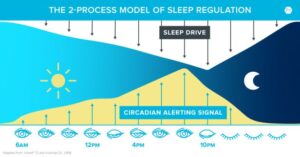“Am I experiencing burnout, or am I just being emotional?”
Burnout has gained increasing recognition within both the work and wellness sectors. This makes sense considering stress levels are at their highest ever (1 vs 2)
Burnout remains a stigmatized health condition, particularly among those of mental health origin.
Some may hear the term “burnout” and respond in kind:
“This wasn’t something people used to complain about when I was growing up, when did people become allergic to hard work?!?! (Taking a sip from their morning bourbon.)”
Burnout is nothing new.
Clinical concept since the 1970s and likely existed prior to being formally named.3
But in 2019, the World Health Organization officially acknowledged workplace burnout as an issue and is developing tools to detect, treat and ultimately prevent workplace burnout4.
And this can only be seen as a positive: knowing you are burnt out means faster and better recovery from it.
Preventing burnout usually means improving overall wellbeing.
We have prepared a handy quiz to help you recognize the signs of burnout–both within yourself and among clients. (To go directly there, click here.)
Next, we will outline three strategies to combat burnout even when stress cannot simply “disappear”.


